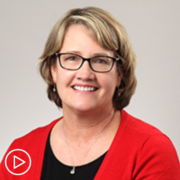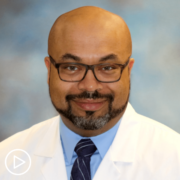Dr. Emily Hinchcliff: Why Is It Important for You to Empower Patients?
Dr. Emily Hinchcliff: Why Is It Important for You to Empower Patients? from Patient Empowerment Network on Vimeo.
How can patients be empowered? Gynecological oncologist Dr. Emily Hinchcliff from Northwestern Medicine shares the approaches she uses in her practice to help empower patients in their journey through care.
See More from Empowering Providers to Empower Patients (EPEP)
Related Resources:

|

Charise Gleason: Why Is It Important for You to Empower Patients? |

Dr. Craig Cole: Why Is It Important for You to Empower Patients? |
Transcript:
Dr. Emily Hinchcliff:
So I empower my patients through education. I think that we as physicians, as providers, serve a really key role for patients in terms of serving as medical translators, in terms of helping our patients to ensure they understand the diagnoses that are facing them and their treatment options kind of for what the next steps in their care are.
So as a GYN oncologist, I really kind of weave that through my entire practice and every step of the way, I have the great privilege of caring for my patients from their diagnosis throughout their cancer journey. And so every step of the way, ensuring that they are educated about their disease and educated about their options, I think really allows us to build a powerful partnership and gives them the kind of ownership over their own cancer care.



